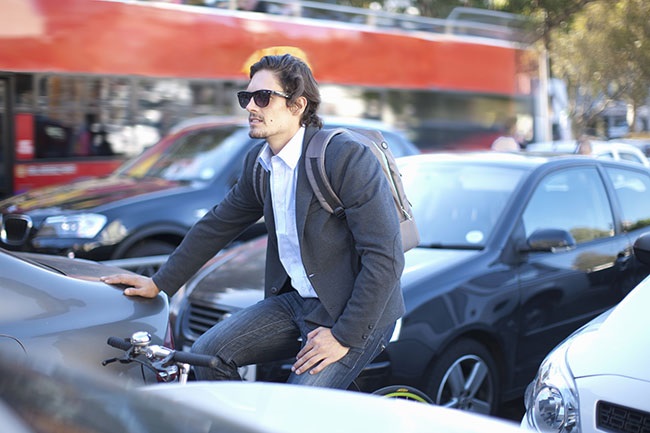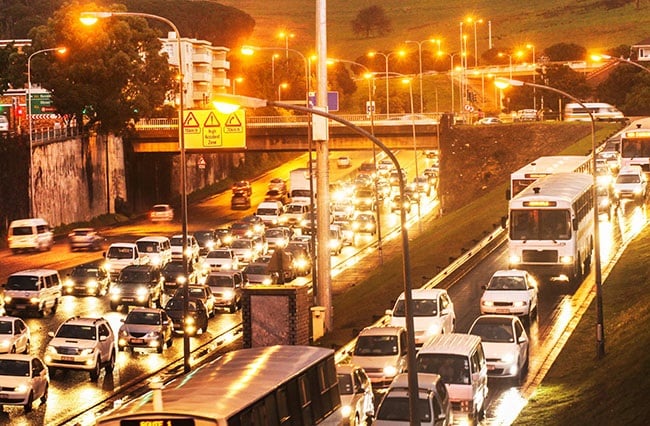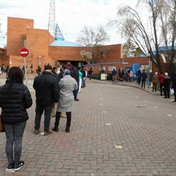Cape Town's traffic is a significant problem, yet there's a flock-of-birds one-stone-solution everyone seems to be ignoring, writes Wheels24 reader who wants to known as a 'Concerned Capetonian'...
I have, in recent times, seen plenty of news coverage regarding Cape Town's growing traffic problem and talks about the capital investment required to solve this issue over the next few years. I have yet to see a story about the potential solution staring us right in the face, but it seems to be ignored by everyone.
Covid-19 forced the world to conduct the most extensive work from home experiments. Yet, companies and the government seem to ignore all the lessons learned from this experiment and its potential to solve some local issues here in South Africa regarding traffic and road infrastructure and ESG (Environmental, Social, and Governance) issues. The polls are in; literally, many polls and studies from different countries and companies about the success of WFH (work from home) or hybrid working policies have been published in recent times.
Do you work from home or does your company have a hybrid office work policy? Or, what are you doing to combat sky-high fuel prices - have you started a lift club, downgraded your vehicle, or even started cycling? Please email us here, or use the comments section below.
I permanently moved to Cape Town in July 2021. My daily work commute includes a +-20km drive from Blouberg to Mowbray. Since then, I have always been based in the office, and I have experienced the change in traffic volumes over the past few months as people return to the office permanently.
WATCH | Petrol is so pricey, thieves are now stealing it by puncturing holes in your car's fuel tank
During most of last year travelling to and from the office was a piece of cake almost all hours of the day. However, in recent times this has been replaced by some careful planning to dodge the traffic, and if you slip up with a few minutes, you are greeted with a battle of epic proportions to find your way through the maze that Cape Town has become known for over the last few years.
I accept that not everyone can work from home, which is not viable for many companies and certain positions within the organisations. However, for the ones that could effectively utilize the WFH (Work From Home) or Hybrid working model approach, even if only a few days per week, it would be foolish of society to miss out on the apparent benefits just because most companies feel they must crack the whip and force people to come to the office. The ego-centric needs of the few should not outweigh the benefits to society as a whole.
The potential only to name a few examples, could include:
• Reduced traffic volumes during rush hours could mean:
Fewer accidents, road-related deaths, and injuries on the roads, including road rage.
Less taxpayer money is wasted on infrastructure upgrades to cater to rush hour traffic volumes.
Less fuel burnt and pollution caused by cars idling in long traffic queues.
Less noise pollution is produced by rush hour madness.
Less infrastructure upkeep with reduced traffic volumes.
• People spending less time on the road could mean:
- More money in their pockets due to fuel savings and car maintenance; this money could then stimulate other parts of the economy.
- Less stress due to reduced commute times per week and better work-life balance.
- Better mental health, even for those who don't WFH, would spend less time in traffic due to large-scale WFH policy adoption.
• Companies could:
- Have a happier, healthier, and more productive workforce.
- Save money by having smaller office spaces with staggered WFH schedules.
- Better outcomes from ESG initiatives.
WFH is not the silver bullet to all our issues and also comes with some of its own disadvantages and challenges. These, however, could undoubtedly be managed using our WFH experience gained during the last two years. Maybe the ideal compromise from both sides, employees and employers, is to form a hybrid model between WFH and office work to ensure that everyone finds that optimal balance that serves the best interests of both employees and employers.
For now, however, most of us seem to be dealing with more time in traffic, car-related expenses, stress, and tiredness to go and sit in an office full of other stressed and tired people spending too much time in traffic and on fuel, so that we can all dial into virtual meetings from the same building or sit at our desk the whole day. All the while, the government is spending our hard-earned tax money on building more roads for the tired, stressed-out people to get stuck on so that they can cause more accidents and attack each other in spats of road rage. And so, the cycle repeats. The South African government has not kept the infrastructure on par with the population's growing needs. We are many years and many billions of rands away from conventionally solving this issue.
If we want to take one good thing away from these terrible past two years of madness, then society should take the benefits of WFH and give people some slight reprieve from the mental health impacts and financial impacts of this pandemic. It also gives our government some valuable time to clean up their lack of traffic infrastructure mess.
If South African companies don't see the light and adopt the benefits of WFH, then it will be up to people to stand up and demand it or up to the local or national government to either mandate or incentivize it. But to look back at this pandemic and what it has taught us regarding WFH and what the future of working relationships could look like, and ignore it all, is a step backward for society as a whole.
It would be a wasted opportunity to address some of the significant issues South Africa, and specifically, the City of Cape Town and its people, face. The needs of the few should not outweigh the needs of the many, and should it happen, it would be a failure of democracy and an excellent example of bad leadership from our government leaders and management of companies.




 Publications
Publications
 Partners
Partners















